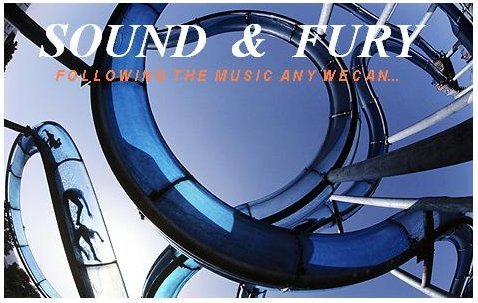In the same way their cultural heritage informed and influenced the jazz voice of Vijay Iyer and Rudresh Mahanthappa, Glenn Horiuchi developed a musical vocabulary that was totally personal and individual. Horiuchi sounded like no one else in jazz. He recorded for rather small labels - Asian Improv Records, Music & Arts, and Soul Note - so never received the recognition he so richly deserved.
Taken from http://adagio.calarts.edu/:
"As an improvisor and composer, Glenn Horiuchi was indebted to the jazz avante garde, Asian traditions, and Western classical music.
He had performances at the Berlin Jazz Festival, Vancouver Jazz Festival, Mexico's Japan Fest, Seattle's Earshot Festival, Asian American Jazz Festival in San Francisco and Chicago, New York's Japan and Asia Societies, Los Angeles Festival, Edmonton's Jazz City Festival, Japan America Theatre, Knitting Factory Piano Festival, Yale University and Brown University.
He was the recipient of composer fellowships from the National Endowment for the Arts and California Arts Council, and grants from Meet the Composer, LA Cultural Affairs, City of San Diego and San Diego Community Foundation.
He had performed with Joseph Jarman, Wadada Leo Smith, George Lewis, John Tchicai, Art Davis, Francis Wong, Miya Masaoka, Tatsu Aoki, William Roper, Mark Izu, Min Xiao Feng, Tom Buckner, San Jose Taiko, and Nobuko Miyamoto.
Horiuchi gave talks and workshops at the Japanese American National Museum, Wesleyan University, Northeastern University, California Institute of the Arts, University of Denver, Stanford University, University of Colorado, San Jose State University, University of Southern California, and University of California at Berkeley, Los Angeles, Riverside, San Diego, and Santa Barbara.
Glenn Horiuchi had worked as an auto mechanic, was a graduate student in mathematics, a political activist, a construction worker, music teacher, and was an ongoing student of Nagauta and zen. Glenn lived in Los Angeles with his wife Edna and son Kenzo.
Glenn was diagnosed with colon cancer in August 1999, and fought a courageous battle until he passed away on June 3, 2000."
The recording offered here is Mercy, recorded for the Music & Arts label on September 2, 1995 (for the first seven pieces) and May 26, 1996 (the final piece). The program plays out like this:
1. Jump Start - 1:12
2. Endpoints - 5:45
3. Curl Out - 4:22
4. Earthworks - 11:17
5. Mind Probe - 6:00
6. Null Set - 6:22
7. Mercy - 11:40
8. Another space (A) - 17:25
tracks 1-7: Glenn Horiuchi Trio: G.H. - piano, voice; Roberto Miranda - bass; Jeanette Wrate - drums
track 8: Jarman/Horiuchi/Wong Quartet: Joseph Jarman - alto sax, E-flat flute, shakuhachi, conch shell, hand percussion, vocals; G. H. - piano, shamisen, hand percussion, vocals; Francis Wong - tenor sax, flute, erhu, hand percussion, vocals; Elliot Humberto Kavee - trap drums, gongs, cello
Enjoy!





Thanks Ground Rule, very well chosen comments.
ReplyDelete